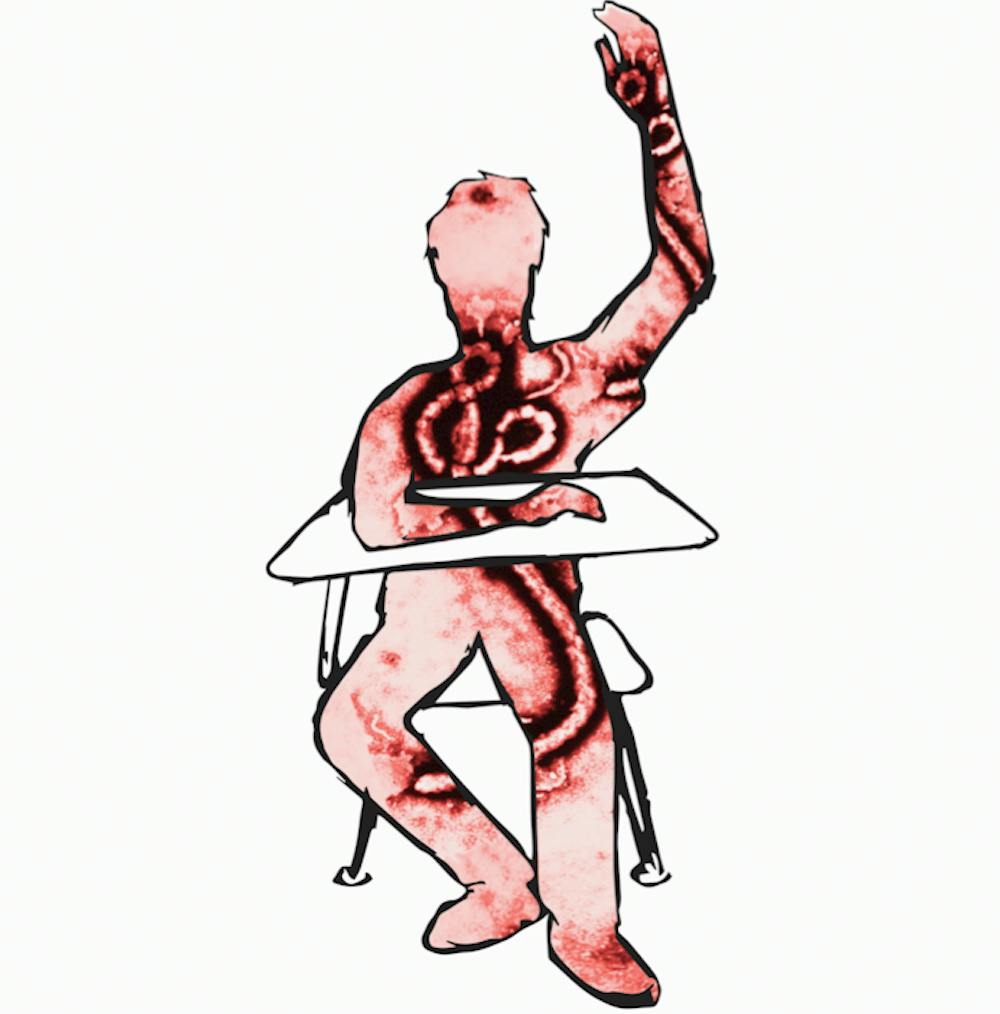How on Earth did a man who recently arrived from Liberia exhibiting symptoms of abdominal pain and a low-grade fever get discharged from a hospital in Texas with Ebola?
Woeful unpreparedness.
Thomas Eric Duncan is a Liberian national who became the first person diagnosed with the Ebola virus in the United States after being admitted, discharged and readmitted into the Texas Health Presbyterian Hospital in Dallas on Sept. 28, CNN reported.
Duncan had sought medical treatment days earlier from the same hospital.
He exhibited symptoms of ebola, although they were vague enough to not have been a concern, especially given the fact that as Americans, with clean drinking water and access to food from trustworthy sources, we don’t expect to contract deadly viral ?diseases.
He simply had abdominal pain and a low fever. In a CNN report, he communicated his travel history but was discharged with ?antibiotics.
One would believe that in arguably the richest, most technologically connected nation in the world, its healthcare workers would know that Ebola is decimating the western African continent. But unfortunately, with our inflated sense of invincebility, we shot ourselves in the foot.
It is important to remember that this is not a West African or a Texan problem.
IU has been involved in the effort through the IU’s Disaster Fellowship program, which helped set up screening for persons possibly infected with the disease this summer.
Despite global efforts to contain the spread of the disease, the Ebola virus has killed more than 3,000 people across Sierra Leone, Guinea and Liberia.
The healthcare network Texas Health Resources released a statement Oct. 3 blaming Duncan’s initial discharge on a flaw in the system that manages electronic health records.
“As designed, the travel history would not automatically appear in the physician’s standard workflow,” the organization said in a press release.
Considering the magnitude of the epidemic and 4,000 troops the United States will deploy to West Africa, no legitimate reason exists that justifies the nurse’s negligence to follow-up on Duncan’s travel history.
It is also massively irresposible for Duncan himself to not disclose his own travel history, knowing that he came from a sick area.
There is simply no excuse.
Despite the chaos that the disease has incited in Africa, the Centers for Disease Control stated the virus poses very little risk to the general American public.
However, the Indianapolis Star reported Dr. Joan Duwve, chief medical officer of the Indiana State Department of Health, said the public cannot rule out the possibility of the disease ?breaching state lines.
“Sure it could happen here,” Duvwe said to the newspaper. “It could happen anywhere where there’s roads coming into a state or buses or airplanes.”
The CDC is currently communicating with health providers in the US through the Health Alert Network and Clinician Outreach and Communication Activity to provide the most up-to-date information regarding the outbreak.
However, the negligence of the Texas hospital to promptly quarantine Duncan is a concerning indication of the sore lack of preparation of the U.S. healthcare system.
While epidemics of the danger and magnitude of the Ebola outbreak are rare, the US should be more vigilant about the threat the disease poses.
As Americans, we have become immune to the calamities of the world because most never reach our soil.
The lapse in judgment of the Texan nurse to follow up with Duncan’s travel history illustrates that American invincibility can creep into the mind of trained personnel.
Ebola is here, and we need to inform ourselves of what its arrival may mean for the country, — for Indiana — lest another patient with Ebola is discharged from a hospital with a prescription for antibiotics.




